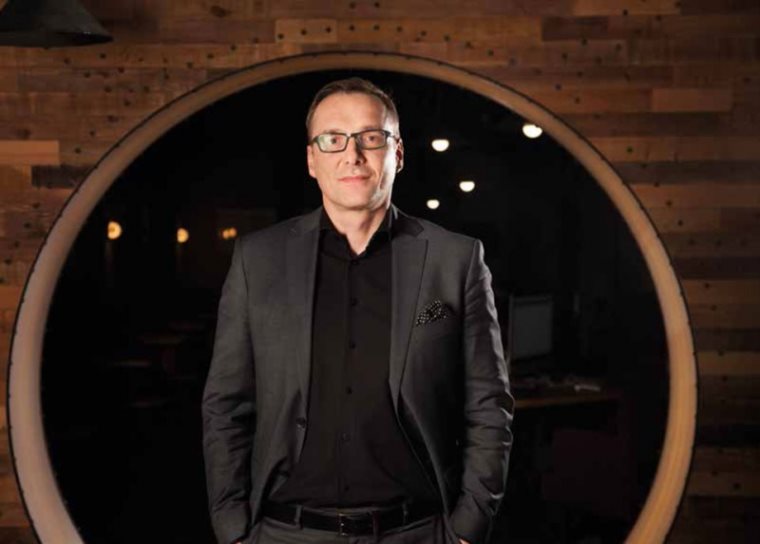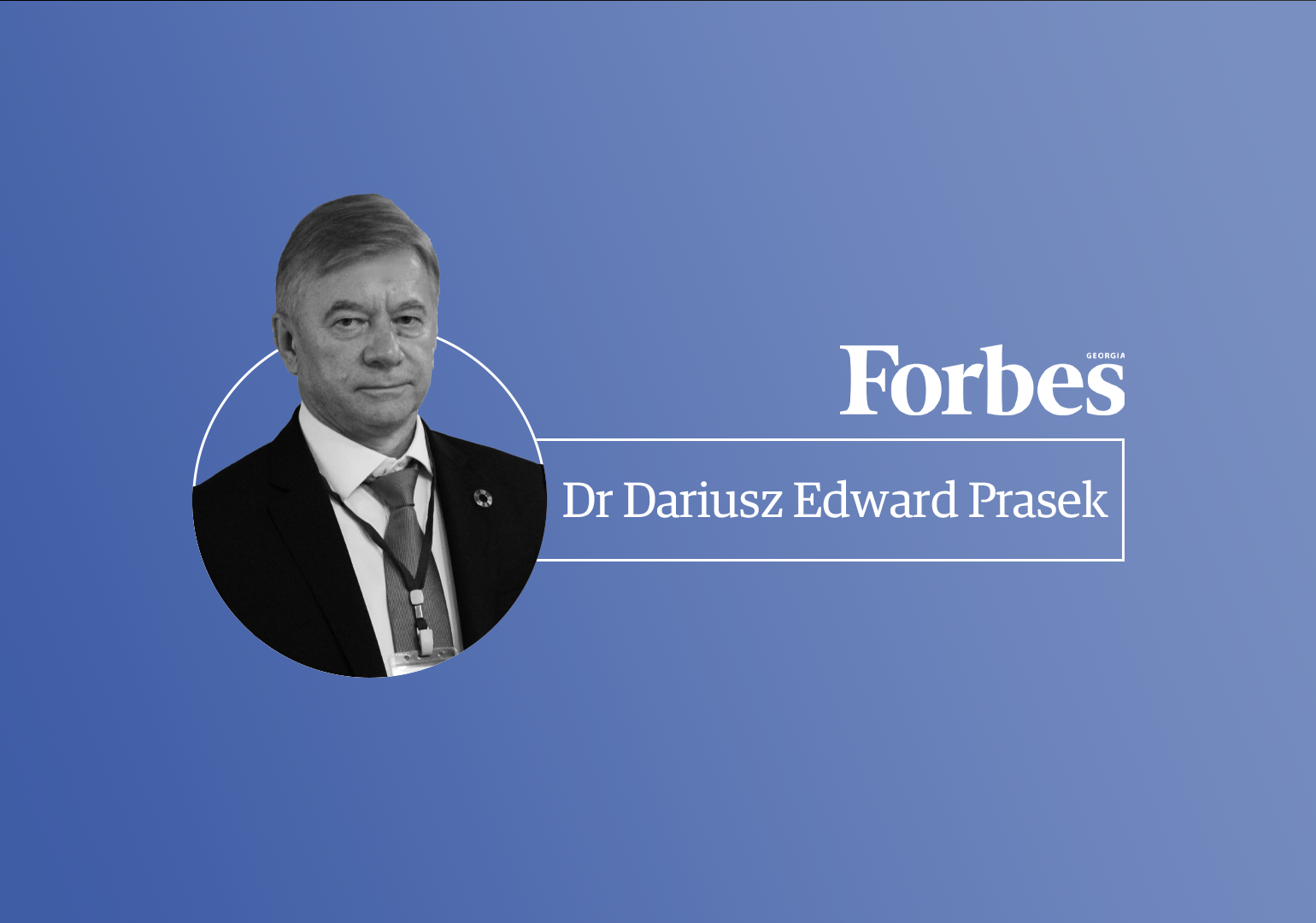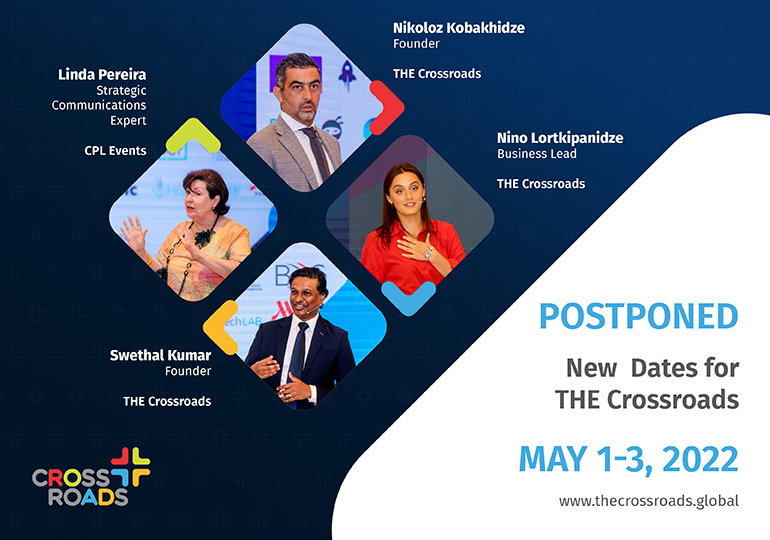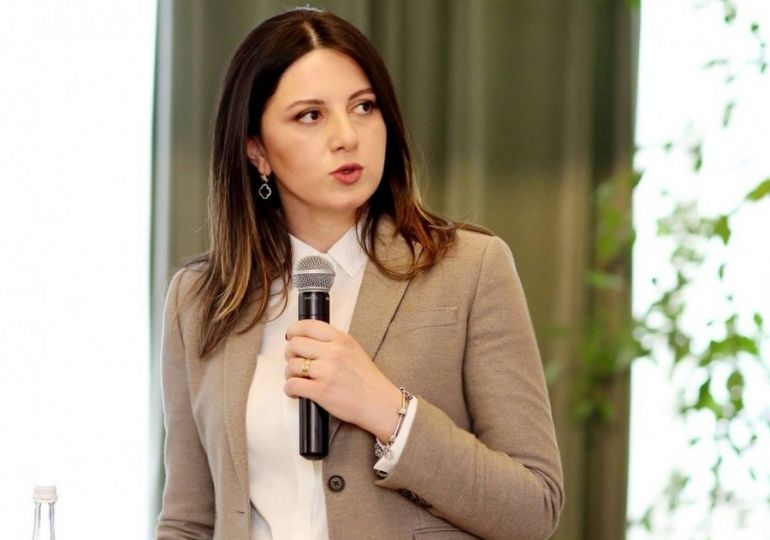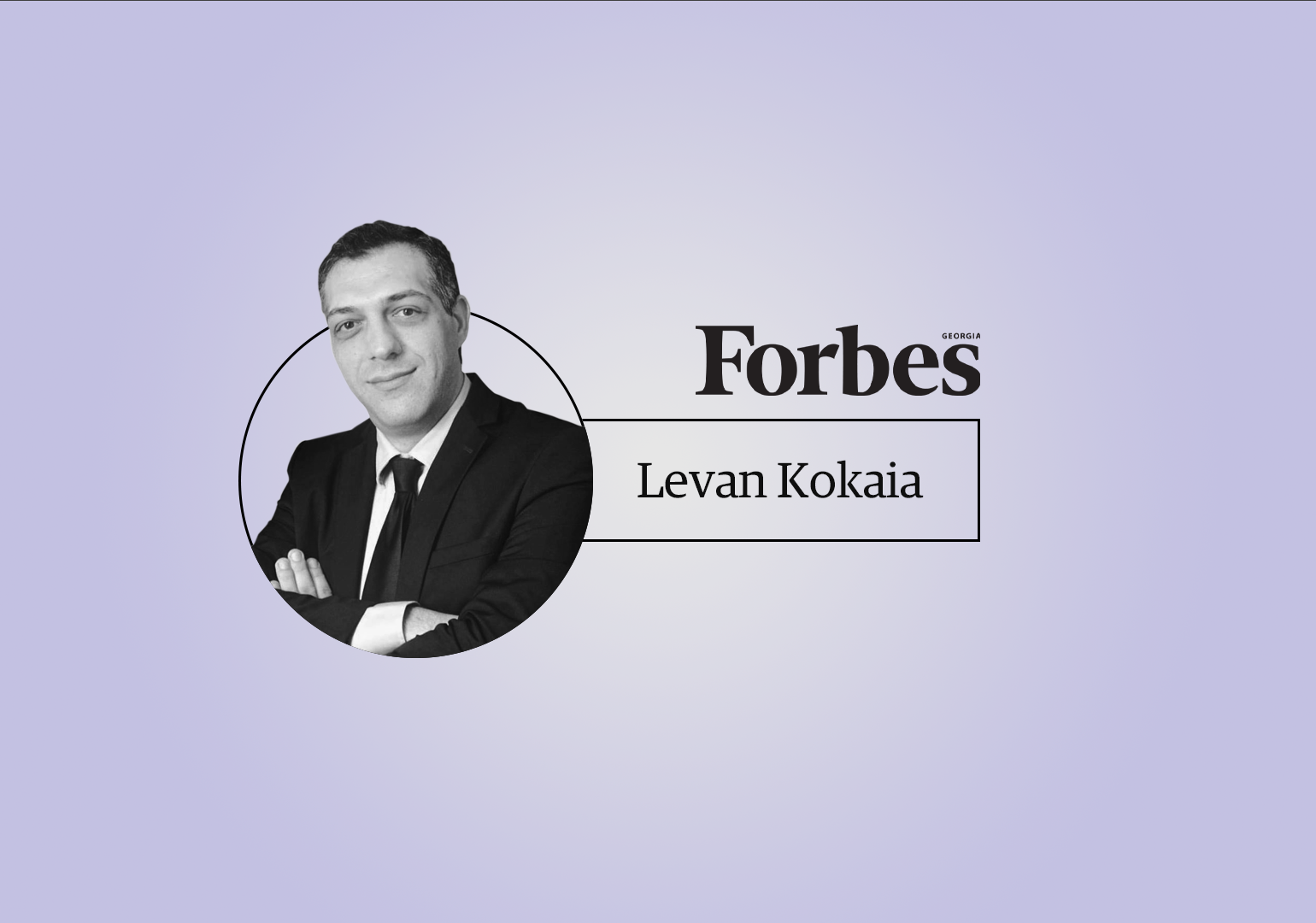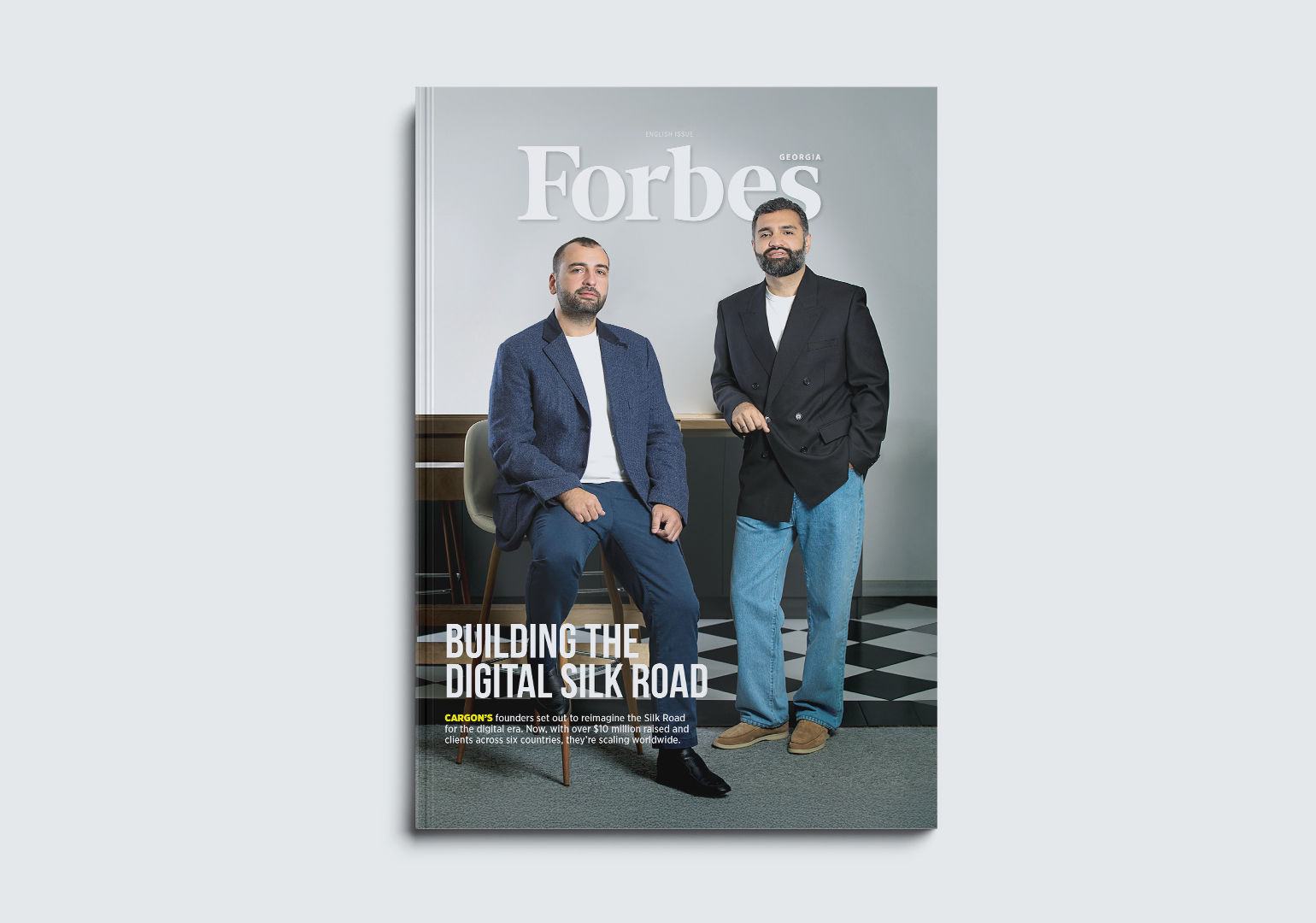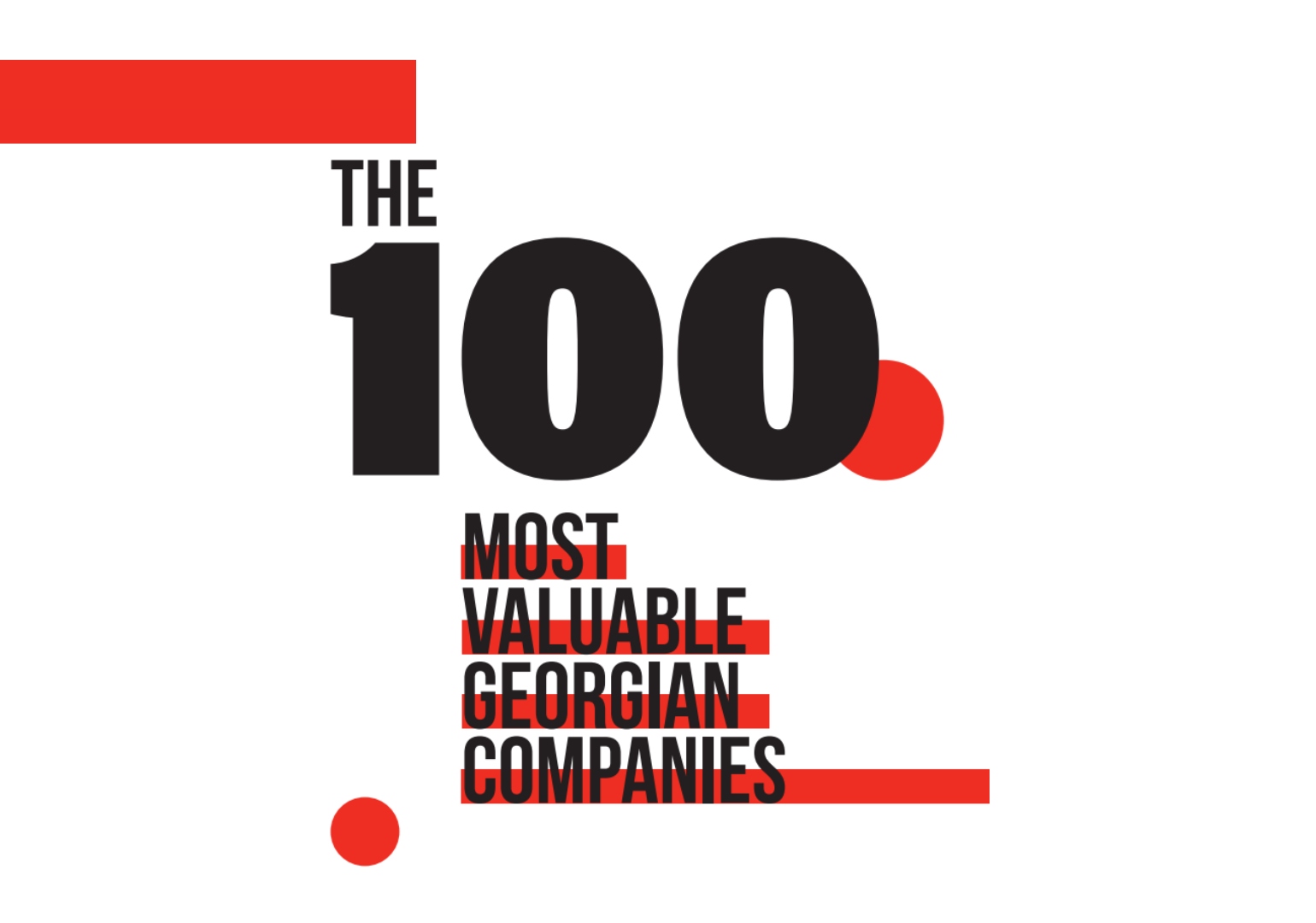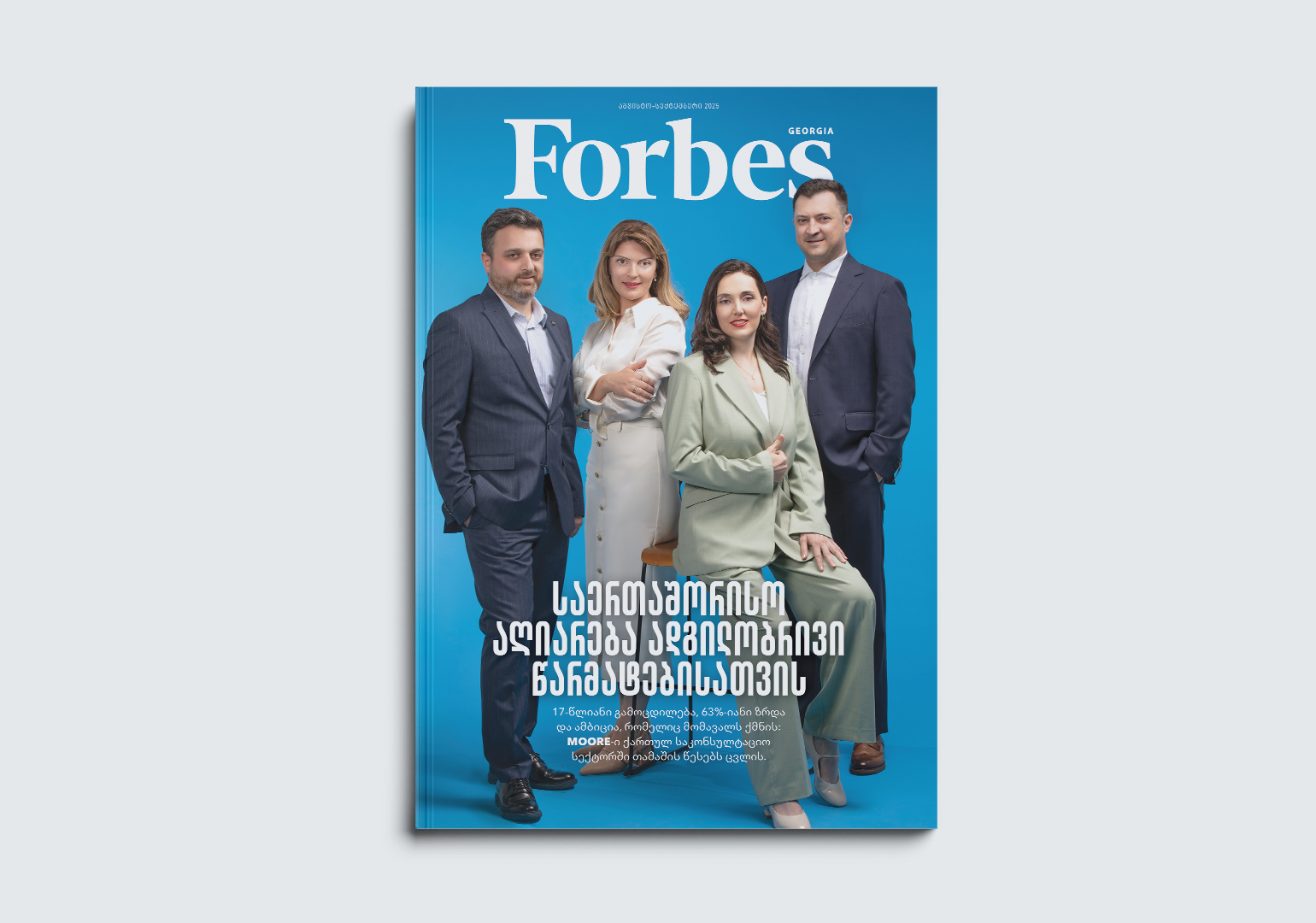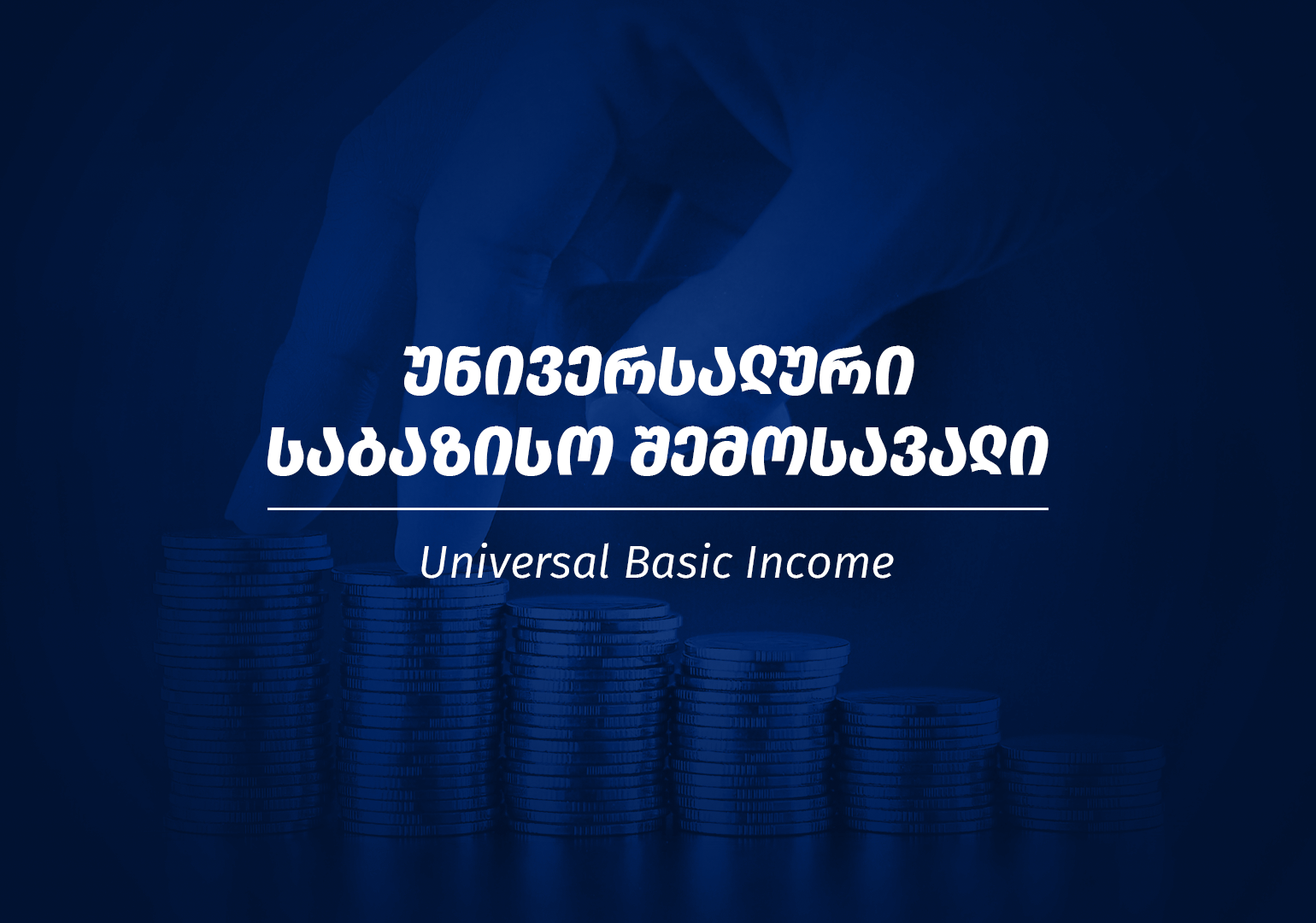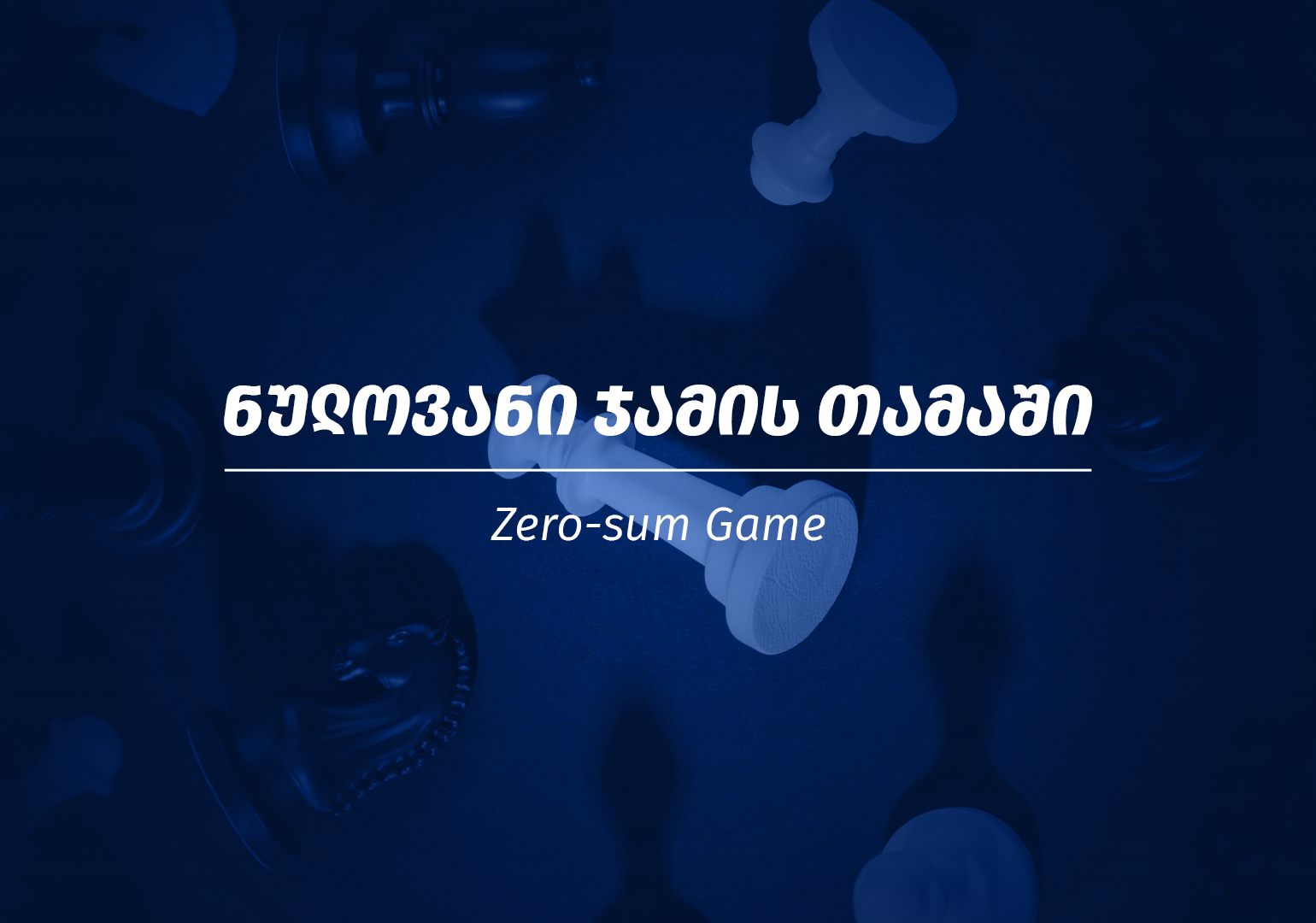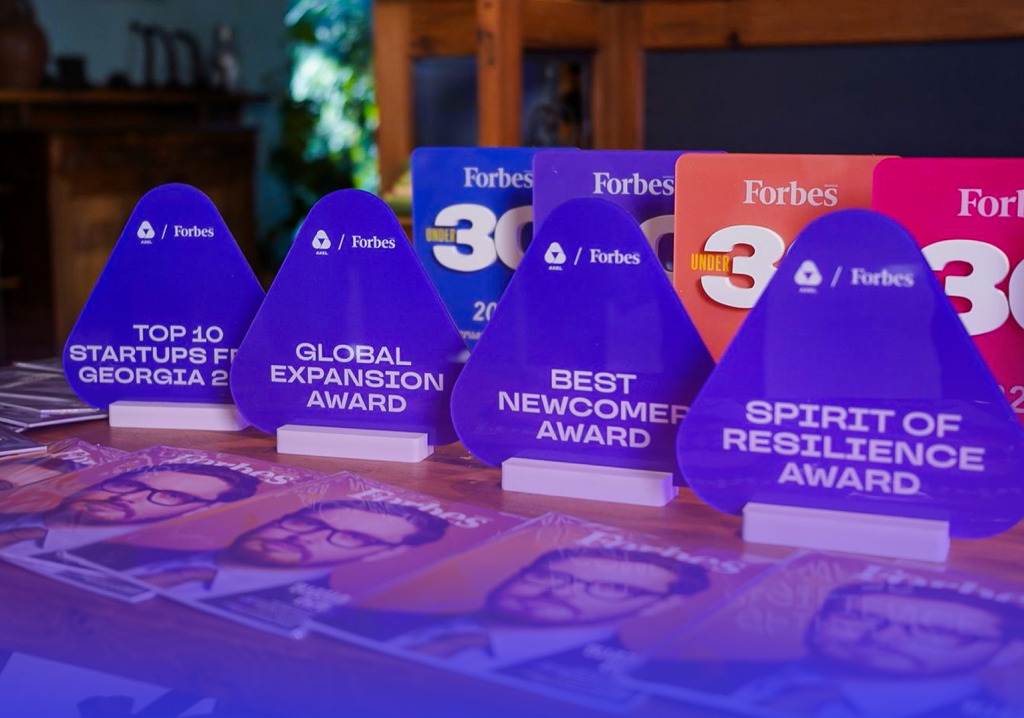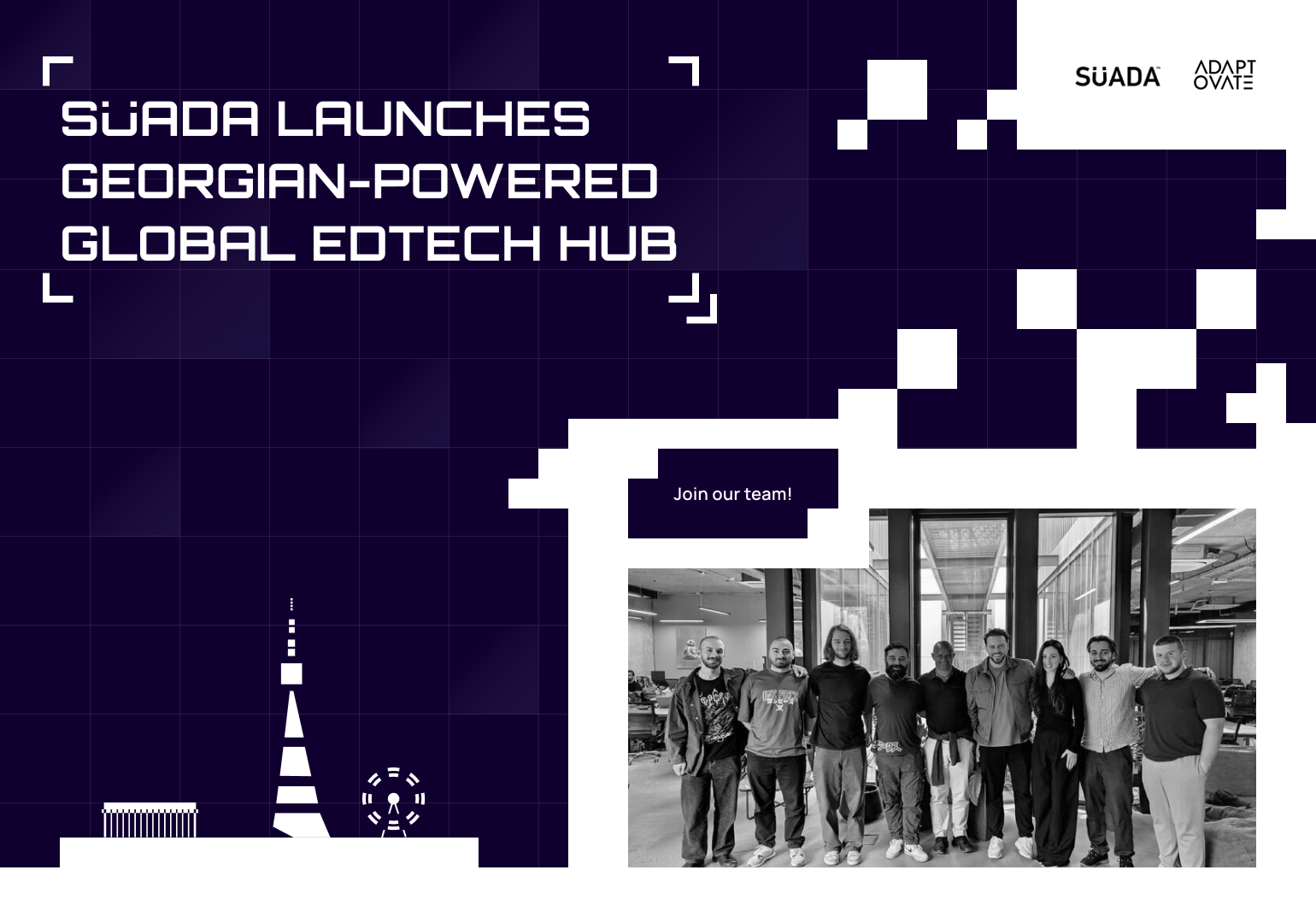Geocell’s CEO Pawel Smalinski is a proud part of the 20 years history Georgia’s first mobile operator has. And by bringing in his own 14 years of Scandinavian business experience, Pawel is both continuing and setting a course for an innovative, customer-oriented, and social responsible future.
Pawel Smalinski, a tall, 47 year old Pole, proudly knocks on the steampunk-like steel door in the basement of the Georgian American University. When we enter, we are greeted by Pepper, a waist-tall white robot from, Japan which can read your emotions, and we see students working behind 24-inch iMacs.
This is where one of Geocell’s CEO’s favorite projects takes place: Geolab, which was opened in 2014, is one of the first initiatives under his leadership. The incubator gives a space and mentorship to students to realize their creative and inspiring ideas. And Pawel is proud of the major accomplishments the lab is already seeing.
Just before we visited Geolab, we sat down with the polish born Pawel in his office at Geocell’s main building on the river Mtkvari. Geocell, which is celebrating its 20th anniversary this year, has a strong history in Social Responsibility and innovative approaches to build a strong customer bond.
Examples of their innovative approach, Pawel says, are the mobile crowdsourcing app Movla, in cooperation with the government, where people can report littering, and clean them themselves or the responsible authority; creating a digital archive for the future generations, the Digital Photo Narrative; and Project Books, a digital series of lectures on world’s most valuable authors and books.
“We are the first GSM operator in Georgia, the pioneer of mobile communication in Georgia. Founded in 1997, we have been a meaningful player in sustainable business processes and prioritizing values, such as human rights, freedom of expression and customer privacy.” Pawel explains to me in his office surrounded by the mobile operator’s distinguishing color purple.
Pawel is proud to be part of Geocell’s tremendous experience. “If I look at the achievements of the past 20 years, it’s such a huge heritage, and we will continue this.” The company has planned several different projects over the next year. One of these is a new student grading competition, to boost competitiveness, launching at the beginning of March. This is a large scale project, uniting students of leading universities of Georgia. The Georgian word for knowledge – “Vici”, became the most appropriate name for this project. Competing for more knowledge, is the main driver behind Vici, added with motivation from Geocell: the more you know, the more points you get. This is the main idea behind the project. And the ones with the highest scores, get free internet package from Geocell.
Pawel, who worked for Telia Company for over 14 years, travelled extensively for work – “I’ve always had a suitcase ready to go”, he says. But he is glad to have settled down at Geocell in Georgia, saying his experience in the Scandinavian way of doing business, is part of how he leads Geocell. “It’s a very sustainable model of business,” he explains.
But the Scandinavian business mentality not only shines through in their CSR projects, Geocell also puts its employees first, Pawel says. “We are a family,” he explains.
Despite suffering from a falling Lari, with receiving their income in Lari’s, but having to spent 95% of their costs in hard currency, the company continues to annually raise salaries.
Pawel also mentions that Geocell values all its employees.“We believe that the employees are the engine of the company. The Scandinavian approach to employees, what I grew up with, is open communication, where everyone is equal.”
With 50% of its top management team female, an impressive number compared to most other Georgian companies, the company also understands the importance of gender equality. Pawel says he’s always worked under women, with one exception, and that he’s always seen the importance of gender equality on all levels, especially in the technology field.
But not all is roses and sunshine at Geocell. The company is dealing with falling profits, seen in the whole mobile operators field; and aggressive competition, with its main competitor Magti broadening its market shares by buying internet provider Caucasus Online, which owned approximately 30% of the country’s market share.
When I mention the large billboard by Magti just above the Geocell store on Saakadze square, Pawel laughs. “It’s healthy competition,” he says. “We perceive that outdoor communication is out of fashion, it is outdated. I very much respect Magti in the technological field, but in terms of communication, the creativity of Geocell is tremendous,” promising us that Geocell will come with a proper, creative, response. “Challenge accepted,” he adds with a friendly wink.
But it’s not all competition between Georgia’s three mobile operators. In response to the government new covert investigation bill, Geocell, Magti, and Beeline have joined forces and are talking with the government to ensure their stance on the issue is being heard.
However, Pawel explains that the results of the mobile operators, regulators and government’s joint efforts will clearly outline strict procedures on customers’ data privacy within the state security purposes, saying he understands its necessity. “Our customer’s privacy, we stand for it, it’s part of our success,” adding that he is extremely impressed with the openness and willingness of the Georgian government to have a transparent dialogue on the issue.
One of Geocell’s additional strategies, to stand out, has been to focus on expanding mobile data coverage countrywide, by investing around 200 Million Lari into the network in 3G at rural areas and 4G in urban locations over two years, increasing 40% of their base stations.
“By investing more than double of our usual investments in last two years, we significantly improved our network,” Pawel says. “We doubled the number of our 3G base stations and we finalized our plans to cover the entire Georgia with an additional layer of high speed data network with U 900 technology in the beginning of 2017, allowing us to provide mobile broadband service in every deep corner and rural area of the country.” But that is not an easy task, he admits, “Georgia is an extremely difficult country to cover in terms of landscape, despite, we continuously work to ensure we have the best 3G/4G coverage across the country.”
Additionally, in 2017, Geocell will increase their 4G coverage, with most cities and winter resorts currently having 4G coverage already; and as Pawel explains, the company is moving forward fast with even better data coverage through its increase Fiber Optic network and U 900 technologies, “this provides a much more efficient network, with a broader coverage on the same territories,” Pawel says.
Up to 200 Million Lari investment to optimize and modernize the network was a commitment Geocell’s mother company Telia made in 2015, realized in the same year as they announced their intention to sell off all their assets in the Eurasia Region, including Geocell.
Even though many thought Telia already had designed a plan stipulating next steps, Pawel adds that there was none yet. He calls it the transparency that Telia operates in: “They merely wanted everyone to know from the get-go they had the intend to sell, but all projects continued without additional hurdles.”
And, whatever will happen in the near future, Pawel is confident that it will not affect Geocell’s operations. “We will continue with Geocell’s progressive strategy, being an attractive asset for any potential investor,” he explains, “we have clear sustainable growth and a very strong brand identity.” And that is how Geocell’s CEO sees the future of his company.
Throughout our conversation, there is a recurring topic, and it seems clear that Pawel’s focus is inspired by his previous work experience at Telia Company.
“We don’t want to open a shop if there isn’t a ramp for people with disabilities. It’s just not happening,” he gives as example for his approach, although adding that it depends if they can obtain a construction permission for the ramp, and if not, they will continue to press for it.
And that is what shines through, where Geocell clearly distinguishes itself by not merely focusing on direct profits, but on ensuring that it leaves a positive stamp on society as a whole.
“The most recent substantial shift that we feel proud of is our new B4B concept. We are ditching old school approach and starting up a whole new era, unique not only to Georgia but the entire region. Instead of being only telco service provider, we are opting for 360 degree partnership.
In other words, we identify the needs of industries and support their professional development by partnering with various innovative events and happenings; whenever we see the need of popularization, we support our partners through Business Award project together with TBC bank. When digital tools are required, we are developing industry tailored business solutions. If need for mentorship emerges – we launch a business hub – meeting point for businesses (soon to be featured on TV). We want to develop the company, we want to develop our employees, we want to develop the market to absorb our innovations. We don’t focus only on the commercial aspects,” Pawel says.
But in doing so, Geocell is cleverly securing a market share for themselves in a rapidly developing Georgia, by creating a direct bond with customers who want more than just old fashioned marketing tactics.
“A strong attachment to innovations, outstanding customer experience, and social responsibility – is what Geocell stands for”, says Pawel Smalinski.
